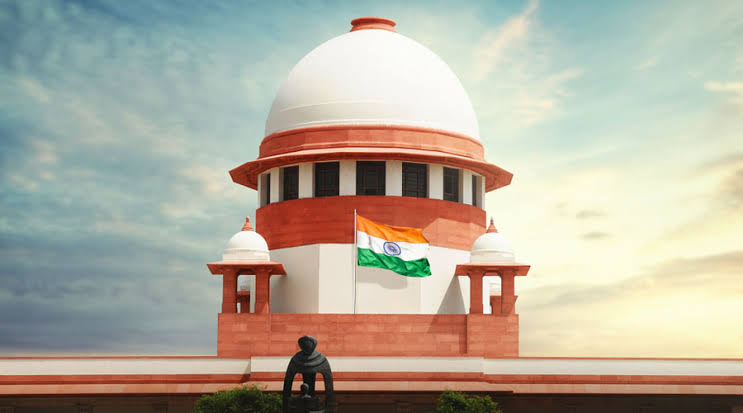New Delhi, February 10, 2025: The Supreme Court on Monday raised serious concerns over the criminalization of politics, questioning how convicted politicians are allowed to return to Parliament and state legislatures. The court sought the assistance of the Attorney General of India and directed the Centre and the Election Commission of India (ECI) to respond within three weeks.
A bench of Justices Dipankar Datta and Manmohan examined the constitutional validity of Sections 8 and 9 of the Representation of the People Act (RPA), 1951, which permits convicted politicians to contest elections after a six-year disqualification period. The court pointed out the inconsistency in the law, noting that a government employee convicted of corruption is permanently barred from service, yet a convicted politician can return as a minister. The matter has now been referred to Chief Justice Sanjiv Khanna for consideration by a larger bench, following a previous three-judge ruling on expediting trials against politicians.
The case stems from a PIL filed by advocate Ashwini Upadhyay, seeking a lifetime ban on convicted politicians, faster trials for MPs and MLAs facing criminal cases, and a ruling on whether convicted individuals can form or lead political parties. Amicus curiae Vijay Hansaria presented data revealing that 4,732 criminal cases are pending against lawmakers, with 892 new cases filed in 2024 alone. Alarmingly, 42% of current Lok Sabha MPs face criminal charges, and some cases have been pending for over 30 years. Despite Supreme Court directives since 2017, trial delays persist due to courts handling non-MP/MLA cases, frequent adjournments, and failures in serving witness summons on time.
Senior advocate Vikas Singh, representing Upadhyay, argued that Parliament never intended for criminals to re-enter politics and cited data showing that 46-48% of elected lawmakers face serious charges, including murder, rape, and kidnapping. He warned that many politicians serve short sentences and quickly return to political office. However, Justice Manmohan urged caution against generalizing trial delays, suggesting a case-by-case approach rather than a blanket ruling.
The Supreme Court had previously ordered all High Courts on November 9, 2023, to set up special benches for monitoring and expediting trials of lawmakers. Although 12 special courts were established in 10 states, the results have been unsatisfactory. With the number of lawmakers facing serious charges rising, the court’s intervention could significantly impact electoral laws, making it more difficult for convicted criminals to return to politics.
Supreme Court Questions Criminal Politicians’ Return to Parliament, Seeks AG’s Assistance

